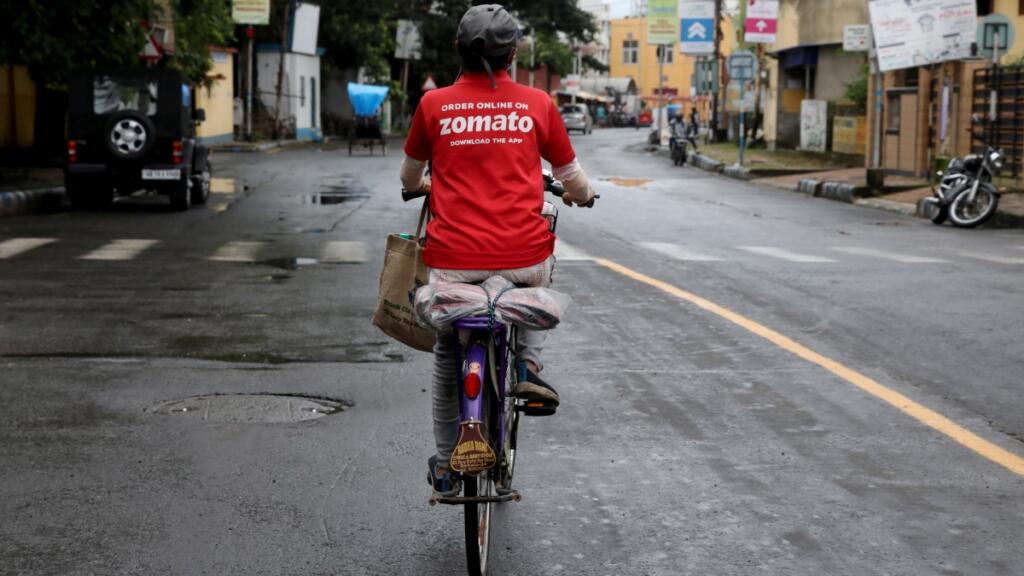In the wake of scorching temperatures plaguing several regions of India, Zomato, a prominent player in the food delivery industry, has issued a crucial plea to its customers. Through a statement circulated on X (formerly known as Twitter), the company earnestly implores its patrons to exercise restraint when considering placing orders during the sweltering peak afternoon hours, unless absolutely indispensable.
The Online Ripple Effect: Zomato’s Appeal Echoes Across Platforms
Zomato’s appeal has not merely fallen on deaf ears; rather, it has catalyzed a robust online dialogue, resonating deeply with users from diverse walks of life. With the post garnering over 878K views and counting, it’s evident that the topic has struck a chord within the digital community, eliciting a spectrum of reactions and responses.
A Tapestry of Responses: Voices from the Virtual Realm
Users have responded to Zomato’s entreaty with a kaleidoscope of perspectives and proposed solutions. Some voices express skepticism, critiquing Zomato’s request as inadequate or impractical, suggesting instead that the company temporarily suspend its services during the blistering afternoon hours to safeguard the well-being of its delivery fleet.
On the other hand, a chorus of dissent emerges, contending that such a measure would undermine the very essence of Zomato’s service. They argue for a more nuanced approach, advocating for the identification and prioritization of ‘essential’ versus ‘non-essential’ orders, alongside bolstering support for delivery personnel through increased incentives or the introduction of heat-related hardship charges.
Beyond the Binary: Novel Ideas to Alleviate Heatwave Pressures
In addition to these prevailing sentiments, users have proffered an array of innovative suggestions aimed at mitigating the adverse effects of extreme heat on delivery workers. One proposal moots the implementation of a mandatory “heat-related tip/hardship charge” appended to every order, with the accrued proceeds channeled directly to the delivery staff, thereby offering them some respite from the oppressive weather conditions.
Others advocate for a more grassroots approach, emphasizing the significance of individual acts of kindness towards delivery personnel. They champion the idea of providing enhanced tips and essential amenities, such as water, to these frontline workers as a gesture of appreciation for their relentless efforts, particularly amidst challenging weather conditions.
A Call to Action: Navigating the Intersection of Corporate Responsibility and Customer Convenience
Zomato’s appeal underscores a broader conversation surrounding the delicate balance between corporate responsibility and consumer convenience. While the company’s initiative to prioritize the well-being of its delivery personnel is commendable, it also raises pertinent questions about the inherent trade-offs and complexities inherent within the food delivery ecosystem.
Amidst the myriad complexities at play, stakeholders are confronted with a pressing imperative to swiftly enact concrete measures. These measures must not only alleviate the immediate challenges precipitated by extreme weather phenomena but also cultivate a culture of empathy and cohesion within the community. This palpable urgency underscores the need for proactive engagement and collaborative action to safeguard the well-being of delivery personnel and uphold the values of compassion and solidarity in the face of adversity.
Conclusion: Forging a Path Forward
In conclusion, Zomato’s recent appeal amidst the backdrop of escalating heatwave conditions serves as a poignant reminder of the interconnectedness of our actions and their broader implications. As users engage in spirited discourse and offer diverse perspectives on this pressing issue, it becomes increasingly evident that a collaborative, multi-stakeholder approach is essential to navigate the complex terrain of weather-induced challenges in the food delivery landscape.
Moving forward, it is incumbent upon industry leaders, policymakers, and consumers alike to collectively forge a path forward that prioritizes the welfare of delivery personnel while upholding the fundamental principles of accessibility, efficiency, and compassion that underpin the food delivery ecosystem. Only through concerted efforts and a shared commitment to meaningful action can we hope to build a more resilient and inclusive future for all.
ALSO READ: Early Monsoon Arrival in India: Relief from Heatwave?
